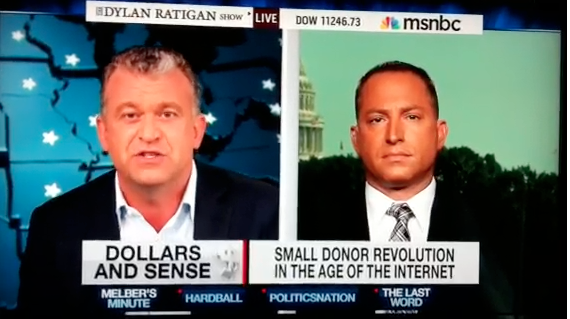From the Washington Times. Â Click here for article:
A solution is gaining steam to help spur small-business growth and the anemic state of job creation. It requires updating Securities and Exchange Commission (SEC) regulations regarding general solicitation and accreditation so average Americans can choose to invest in small businesses.
Crowd-fund investing is a common-sense solution that has attracted the interest and support of President Obama. Republican Rep. Patrick T. McHenry of North Carolina recently introduced H.R. 2930, the Entrepreneur Access to Capital Act, legislation that aligns with the general framework supported by the president. So here we have a common-ground idea over which both sides of the political aisle agree on many key details. It’s time to move forward quickly so crowd-fund investing can help capital-starved businesses and our gasping economy.
Nascent entrepreneurs and growth-oriented firms continue to have a difficult time finding capital to expand and innovate. Of course, our nation has counted on the job-creating prowess of small businesses to lead us out of difficult economic periods. This time around, unfortunately, the uncertainties have become too great. New startups, which have fueled job creation following previous recessions, have not taken root at the same pace as in the past.
Weak demand, tight capital and credit markets, and policy uncertainties continue to erode confidence and entrepreneurial activity. The crowd-funding solution addresses a key concern that would help entrepreneurs identify new sources of capital, thus providing optimism and much-needed resources for investment and growth.
America, the land of opportunity, is being out-innovated. Other places, such as the United Kingdom and France, with similar capital constraints have already made crowd-fund investing legal. The crowd is vetting the ideas of entrepreneurs and backing only those they deem worthy. Fraud – a key issue of concern for regulators and legislators alike – hasn’t reared its wicked head, thanks to hundreds if not thousands of prospective investors picking apart the idea, the business model or the execution plan of the entrepreneur for bringing his goods or services to market. These discussions and vetting occur in open dialogues on Internet platforms.
While not allowable under existing U.S. securities laws, crowd-fund investing can provide a way for micro-angel investors, both accredited and unaccredited, to pool their individual small investments to support entrepreneurs and enterprises that have merit. If changes are made in U.S. laws, the funding rounds can occur via SEC-regulated websites. These websites will provide transparency, open communication, accountability and reporting among the investors, entrepreneurs and theSEC. This is an expanded version of “friends and family†fundraising, which uses an individual’s or business owner’s social networks to create jobs and grow the economy.
Mr. McHenry’s bill would provide a crowd-funding exemption to SECregistration requirements for firms raising up to $5 million, with individual investments limited to $10,000 or 10 percent of an investor’s income. The exemption would erase limits on the number of investors until the first $5 million of capital is raised. This exemption provides smaller investors an opportunity to support startups, which currently is not an option under SEC regulation.
In my recent testimony before the House Committee on Oversight and Government Reform subcommittee that Mr. McHenry chairs, I noted some other key provisions that may be considered to address fraud and accountability concerns. For example, there could be a requirement that investors take a brief online course about crowd-fund investing and review a series of disclosures that demonstrate they are familiar with the basics of investing and understand the risks.
In addition, general solicitation should be allowed only on registered Internet platforms where entrepreneurs and investors can meet and the crowd can vet in an open and transparent manner. Standards-based reporting would be submitted to the SEC by small businesses using the platform. A project would not get funded until it met its minimum target. It would be an all-or-nothing proposition. Only if the target was reached would money be withdrawn from donor accounts.
The proposed reforms to existing law are modest and follow the spirit of the Securities Act of 1933 and the Exchange Act of 1934. The modifications include anti-fraud safeguards and create a peer-to-peer system in which communities become the de facto seed and early-stage funders to entrepreneurs. There is wisdom in crowds. They are massively diverse and have a better collective intelligence. Every investor contributes to the crowd’s knowledge. An interconnected, knowledgeable crowd brings more experience. Together they will fund ideas that help small businesses – and the investors themselves – succeed.
A crowd-funding model, of sorts, has been taking place successfully online for the past five years. The current model allows a group of people to pool their money and “donate†it to fund an idea. More than $300 million has been donated to more than 500,000 artists, musicians and developing world entrepreneurs. Imagine what could be accomplished if investment dollars were devoted to promising U.S. entrepreneurs whose ideas only need the capital to launch into the marketplace?
Now it’s time to take action. Americans need to be allowed to do what they do best: come together as one to out-innovate, outproduce and outwork the rest of the world. The only question: How long will it take for our government to let us?
Sherwood Neiss, an entrepreneur, is founder of Startup Exemption and a member of the Small Business and Entrepreneurship Council.





